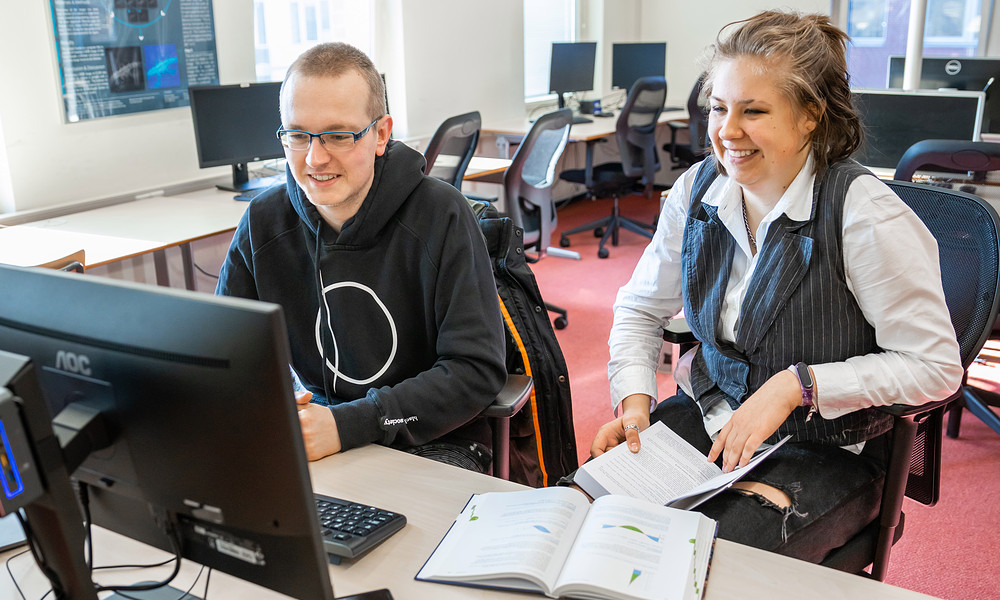Expand your knowledge of data science to help your biological research
- Minor
Expand your knowledge of data science to help your biological research

Does a career in Life Sciences appeal to you? Do you want to strengthen the digital skills that are relevant to your research and profession as a Life Science student? This is your chance! The minor Data Science for the Life Sciences starts in February.
The programme Data Science for the Life Sciences focuses on acquiring and developing the digitals skills which professionals in the Life Sciences need to handle large amounts of data and solve problems in modern Biomedical Sciences. You will explore the digital toolbox of Bioinformatics and learn about genome sequencing, data processing, analysis and visualisation, database technology and the basics of programming.
In several projects, you will learn to use these tools, for instance to analyse the DNA of a patient with the intention to identify genomic variants that most likely cause certain diseases. You will learn the programming language R to explore the domain of digital experimentation and analyse genome-wide gene expression determined through RNA sequencing. After this programme, you will know everything you need to process data independently on a basic level.
| Title | ECTS Credits | Course Code |
| Genomics Project | 5 | BFVH24GENOMICS |
| Bioinformatics
| 5 3 | BFVH24BIOINFORM |
| Data analysis and visualization using R | 5 | BFVH24DAVUR |
| Transcriptomics
| 10 8 | BFVH24TRANSCRIPT |
| Machine Learning | 5 | BFVH24MACHINE |
This exchange programme is open to students who have completed two or three years of a bachelor's programme in the field of life sciences and have a basic knowledge of genetics, cel biology and statistics. We also require a CEFR level of B2 or higher.
For questions about the content of this exchange programme, please contact the coordinator via the 'Contact & FAQ' tab above.
Are you a student at the Hanze University of Applied Sciences? The minor is accessible for students from the Biology and Medical Laboratory Research programme who have aquired 60 EC from the propaedeutic phase and 48 EC from the main phase. You can sign up via Osiris, up to 4 weeks before the start of the minor.
Third year students from a program in biomedical sciences from another university or university of applied sciences can apply for this minor via the website Kies op Maat (under the name Data Science for the Life Sciences): www.kiesopmaat.nl.

Docent-onderzoeker
Zernikeplein 11, 9747 AS Groningen
How satisfied are you with the information on this page?